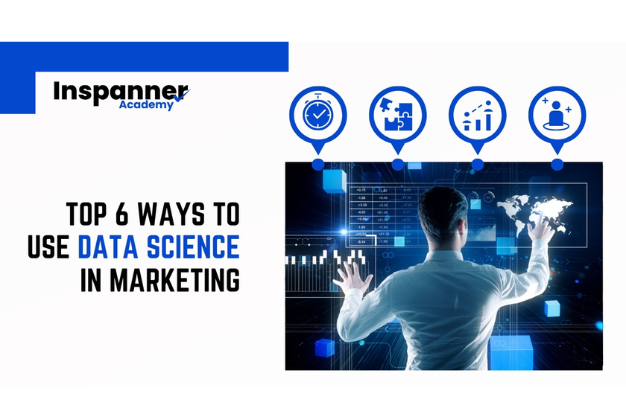As decision-making is data-driven today, it has become imperative to use Data Science as part of Marketing Strategies. Able to capitalize on marketing data can improve campains, personalize experience and ultimately increase profitability. The following guide will help you understand how Data Science can make a difference when it comes to marketing and examine six powerful ways in which the field of data science can transform your marketing efforts. If you are a student or an entrepreneur seeking to enhance your skills in marketing and business, consider enrolling in a Data Science Course in Hyderabad, a hub of technological learning and innovation.
Getting Started With Data Science in Marketing
In simple words, data science is a combat field for statistical methods/algorithms and machine learning techniques to analyze complex datasets. Marketers use data science to provide their businesses with insights on customer behavior, campaign optimization and members of priorities. Running the metrics provides insights that become benchmarks for data-capitalist companies to get powerful competitive edge out of these masses off valuable information.
Personalizing Experiences: The Future of Recommendation Systems
Among the data science applications shopping marketers use, recommendation systems are some of the most influential ones. These systems support user data analysis and recommend products or content to users based on their interests, thereby increasing engagement, in other words customer satisfaction.
Recommendation Systems
The content-based recommendation systems: These recommend items based on the attributes of products that a user has liked in past If a customer bought science fiction novels the other week, it will suggest similar books. This way, the recommendations are closely aligned to what the user would like.
Recommendation Systems on Collaborative-Filtering: It uses the likes of various users to make a recommendation This means that where users have similar tastes, one user may like an item and then the engine can recommend it to another. It uses community data for the best personalization.
Customer Segmentation
Businesses use Data Science to segment and target the audience according to given demographics, purchase behaviors, etc. If you identify these segments, marketers can customise their messages and campaigns resonate more strongly with each audience. It also means that you can market to your customers more effectively, and therefore be less likely to annoy them.Sentiment Analysis
It applies natural language processing (NLP) to analyze reviews, social media posts and feedback surveys for customer opinions. Marketers can review the sentiment of this data to understand how their brand and products are being perceived. Companies can address issue areas, streamline services and customise their marketing strategies based on customer sentiment.Customer Churn Prediction
Customer churn prediction is critical in client retention. Customer behavior gets analyzed using data science methods to figure out what kind of signals customers give before they decide to part ways with a product. Businesses use churn propensity to determine the factors leading customers to leave, so they can target that group of current or potential clients with personalized offers and customer service improvements.Market Basket Analysis
Market basket analysis involves analyzing transaction data to identify mutual relationships between products. Based on the sales of corresponding products, companies can then improve cross-selling tactics and eligible marketing actions. For example, if research shows customers tend to purchase chips with salsa then a company might offer the two together or place them in close proximity next to each other inside of store. Customers get a better shopping experience and thus increases sales.Campaign Optimization based on Predictive Analytics
By utilizing historical data to predict future events, predictive analytics can aid marketers in their campaigns decisively about the best possible move. This allows businesses to identify what trends are occurring and therefore, adjust strategies for greater impact. This helps to identify the moment when a campaign should be executed or how it can best target individual groups of customers, predictive models show just that.
Conclusion
The impact of data science on marketing cannot be underestimated. Recommendation systems, customer segmentation, sentiment analysis and predictive analytics are some of the tools that businesses can leverage to spearhead focused marketing initiatives. In the ever-changing marketing landscape, those who put on their data-colored glasses and follow suit will be more prepared to meet customer needs in unique ways. Utilizing the power of data science in marketing not only increases engagement but also cements relationships with consumers that ensures success for long-term periods.



.png)



.jpg)